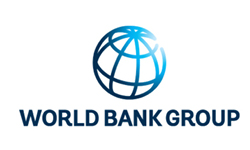Publications
Filter by
566 results found
This report leverages the experience of NGFS members and observers, as well as a survey of 25 central banks and 24 financial supervisors, to examine key challenges related to market transparency in green finance - particularly with regard to taxonomies; green external review and assessment; and climate transition metrics, frameworks, and market products. It also aims to inform a broad dialogue with market participants to find potential solutions to policy challenges.

This publication illustartes the EIB's framework for assessing, managing and monitoring environmental and social impacts and risks associated with its operations.

The European Commission's Economic Appraisal Vademecum 2021-2027 - General Principles and Sector Applications aims to promote and simplify the use of Economic Appraisal (EA) for EU co-financed investments.

The European Commission's 'Guide to Cost-Benefit Analysis of Investment Projects' is a practical guide to major project appraisals.

The European PPP Expertise Centre's mission is to support the public sector across Europe in delivering better public-private partnerships (PPPs). It shares good practice, assists policy development, and supports PPP project preparation.

This paper presents three different approaches to quantifying postive and negative “additionalities” of cross-border transport infrastructure developments in GMS economic corridors.

The Financial Stability Board (FSB) have published a consultation report on the Evaluation of the effects of financial regulatory reforms on infrastructure finance.
The aim of this report is to increase knowledge about cross-border transport infrastructure planning in the Nordic countries by identifying barriers, highlighting opportunities, and proposing measures to facilitate the planning of cross-border transport infrastructure.

This analysis was drawn from the GI Hub's InfraCompass tool. and the case study reflects information on how the reform of land registration in the Malaysian state of Sarawak took place.



This paper provides reflections and considerations as to how MDBs including the IDB can use the Project Preparation Facilities (PPFs) to help countries fill the infrastructure gap by improving the quality of projects, reducing and mitigating risks, and leveraging private financing.


The World Economic Forum publishes a Financial Development Index annually, which measures and analyses the factors enabling the development of financial systems among different economies.



This publication discusses financial viability support in the global landscape of infrastructure finance.


This publication captures the proceedings of the forum, which featured presentations on the regional economic outlook and various financing schemes for urban infrastructure projects.

Modules 1-4 (out of nine modules) of the PPP Manual systematically guide public and private parties through the phases of PPP project preparation for national and provincial governments.

This publication outlines the rationale, the characteristics, and a plan for the implementation, monitoring and evaluation of the African Development Bank's guidelines for the aviation sector.

The goal of this paper is to estimate the additional annual spending required for meaningful progress on the SDGs in these areas. Our estimates refer to additional spending in 2030, relative to a baseline of current spending to GDP in these sectors.

The FCCL Framework was prepared in assistance with the World Bank under the IFPPP project and it comprises FCCL guidelines and the FCCL technical manual.

This brief explores how to ensure that today's mobility needs are not met at the expense of future generations




 Link
Link


